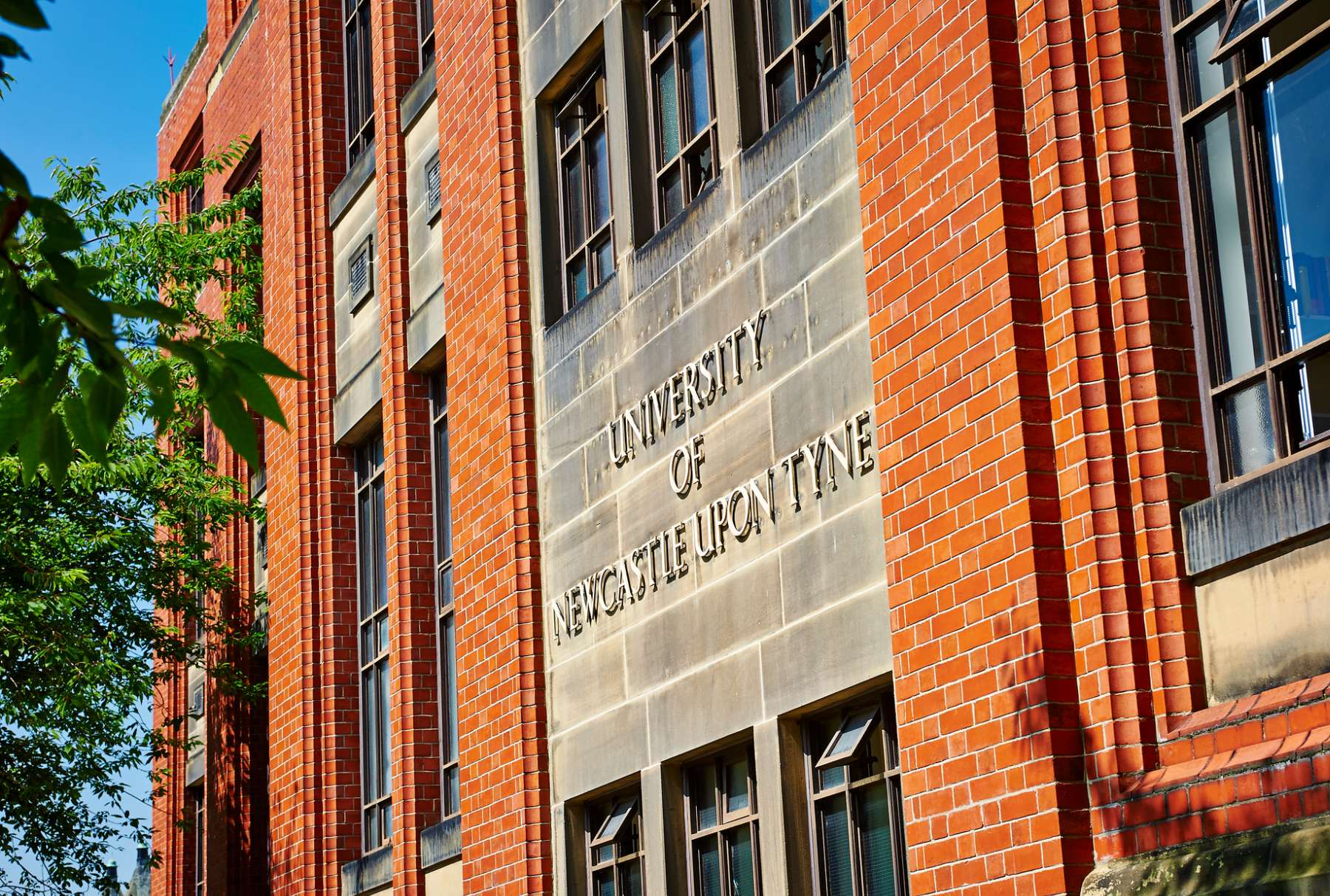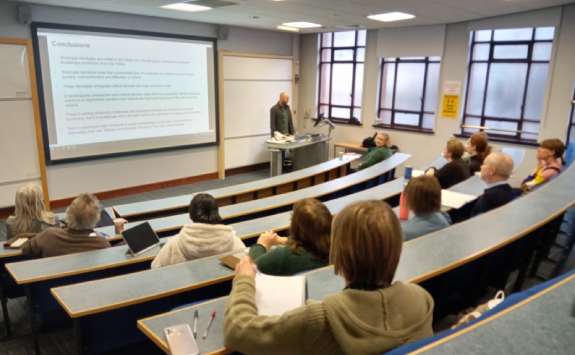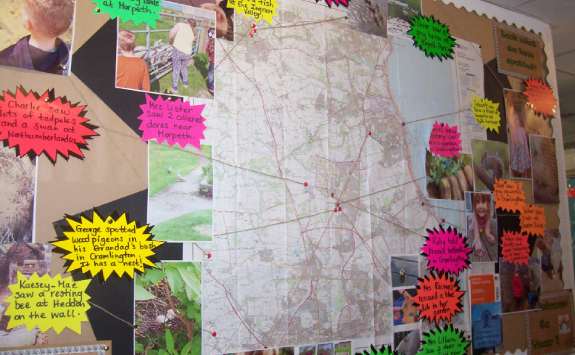Community for Learning and Teaching Newsletter
January 2023
Issue 44
CFLAT headlines
CfLaT’s visiting PhD researcher from Brazil, Gabriela Heck (see Issue 43) is about to head home, but she leaves us with write-ups of her work: how I use the concept of science capital in my research on accessibility and inclusion of people with disabilities in STEM, a text I wrote for the STEM Education Hub, a centre from the Brazilian British Council and King's College London
David Leat and Alison Whelan have a chapter ‘Innovative pedagogies in relation to curriculum’ in a prestigious encyclopedia, the ‘International Encyclopedia of Education’, published by Elsevier.
Pam Woolner, Alison Whelan and Ulrike Thomas have started work on an exploratory project with the Department for Education considering how student views can be added to feedback the DfE collects about how well new school buildings are functioning. The CfLaT team includes our placement student Katherine Clements, and they are working with Ahmed Kharrufa and Denise Lengyel from Newcastle’s Open Lab.
Collaborative ReDesign with Schools (CoReD) has now formally ended, but the project website will be maintained. This is important as the content includes a host of resources in six European languages.
Debbie Ralls, has a chapter, ‘Reimagining Education in a Pandemic: Children and Young People as Powerful Educators’ in the newly published book, ‘COVID-19 and Education in the Global North.’
Co-creating Classics
In January, Dr Stephanie Holton, Senior Lecturer in Classics, was invited to the University of Greenwich to present some initial findings from her Applied Ancient Languages project (AAL). This project arose from the increasingly pressing need for modernisation in the pedagogy of ancient languages, which continue to see a pattern of decline across enrolment, engagement, and attainment. Steph explains what’s been happening:
The initial stage of our project has explored co-creation – involving university students as partners – not only within curriculum design, but also for educational outreach activities which usually fall under the ‘extra-curricular’ category. Studies have shown the potential benefits of basic Latin and Greek ‘word root’ knowledge on pupil literacy and closing the vocabulary gap at KS1/2. So, as part of AAL, students co-designed and delivered Latin and Ancient Greek sessions for primary age children in schools and museums, as well as online.
After the project’s first year, it was these extracurricular activities which were identified as building a more positive engagement with and experience of the learning processes of both languages. Student participants also reported feeling a stronger sense of belonging, within both the disciplinary department and the local community. Given these results, the next stage of the project will investigate how these cocreative active learning activities can be incorporated more fully within the curriculum.
For more information contact Stephanie.Holton@ncl.ac.uk
Resources available from LIVELY project
The LIVELY project is a randomised control trial (RCT) evaluating interventions to support language and communication in the early years. Christine Jack is part of the team that that has just put together a best practice booklet.
CfLaT RESEARCH TEAS 3 YOUNG NATURALIST REPORT 4 It is based on asking early years educational settings what they are already doing to support their children. The project also provided four CPD sessions for participating schools – these are freely available on the LIVELY website.
The best practice booklet takes elements from the CPD sessions and the interviews with schools and is available as a pdf on the LIVELY website.
For more information contact Christine.Jack@ncl.ac.uk
There were four types of events:
- Invited seminars from external speakers with expertise in inclusive pedagogy
- A new forum for staff and PGR students to share ideas on education/ social theory called ‘theory for action’
- Research Teas
- Reading group CEDARS (Critical Education and Discourse Research Studies).
We began with a Research Tea hosted by CfLaT’s Hanneke Jones, who shared some of her groundbreaking research into the pedagogical approach known as ‘the community of Enquiry’, asking if this approach is or can be inclusive. This encouraged some animated discussion! This was followed by two events in one week in December. First, we held the new ‘theory for action’ event which was very well attended by academic colleagues and students, in which 7 Education Section staff and 4 PhD students presented their use of theory in education research. The theories ranged from Margaret Archer’s ‘internal conversation’ to Engestrom’s model of activity theory to complexity theory! The presentations spurred some deep thinking, fascinating conversations and unexpected networking opportunities.
Later that week we held our first external research seminar speaker, Dr Lauren Stentiford from Exeter University, whose zoom presentation was followed by 2 respondents from ECLS (Prof Caroline Walker-Gleaves and Dr Nick Riches). Lauren’s presentation on her research undertaking a systematic scoping review of inclusive pedagogies in HE proved very relevant, and again spurred some great conversations and networking.
In January we were joined by our second external speaker Dr Ian Cushing from Edge Hill University, talking about his research examining the discourse of a ‘language gap’ for poor and minoritized pupils. His presentation of his work, which uses critical discourse analysis of historical documents and corpus linguistic analysis of a huge dataset of Ofsted reports, was absolutely fascinating. This was well attended and there were so many questions and exciting conversations afterwards, that poor Ian had to ask to leave to catch his train!
The following week, CfLaT’s Lucy Tiplady provided the second Research Tea. She taked about her work with Forest Schools, asking: are they inclusive and how can we research this? We didn’t entirely resolve this but enjoyed the discussion.
There are two remaining events: Cedars (Critical Education and Discourse Research Studies) will meet to discuss our reading of a paper by Felicitas Macgilchrist called Positive Discourse Analysis: Contesting Dominant Discourses by Reframing the Issues. This will be an interesting counterbalance to Critical discourse analysis! And, as an extra event, we will be joined in person by Prof Dave Hill, a preeminent Marxist educator, who will be speaking on `How Capitalism and Capitalist Schooling Exclude: Inclusive Education/ Exclusive Education - a Marxist Perspective'.
Contact Heather.Smith@ncl.ac.uk
'Learn the ropes' at Blyth Tall Ship heritage courses
How can the implementation of heritage skills workshops have a positive, sustainable impact on individual and community wellbeing?
Over the last year, the CfLaT research team of Alison Whelan, Bruce Davenport (School of Arts and Cultures), and Katherine Clements (CfLaT placement student) have been observing and working with participants and facilitators from workshops offered as part of Blyth Tall Ship’s Learn the Ropes courses. These workshops develop skills in traditional woodworking, gansey knitting, archiving and sea shanty singing.
During the first phase of the project, a range of evaluation tools were developed, drawing on theories and research from the field of social sciences with reference primarily to community wellbeing and volunteering and trialling a set of evaluation tools including an observation sheet and a wellbeing questionnaire. Alongside these, we explored the area of community wellbeing and created a Diamond 9 ranking exercise to use in a participatory approach. Semi-structured interviews analysed with a Thematic Analysis approach allowed us to explore the views and perceptions of the participants and the facilitators in more depth.
The Phase 1 initial findings demonstrate that there is evidence of an increase in individual wellbeing during and after participation in the workshops, and the qualitative comments from the participants show the impact that engaging the workshops has had on their confidence and willingness to interact with others. Although the self-reported wellbeing scores showed an increase, there is debate over how external factors may influence their scoring and how much emphasis can be put on the workshops alone raising wellbeing.
Community wellbeing is a nebulous concept and is more difficult to capture. Using a social network analysis, we ascertained that many of the participants frequent several community organisations across the local area, and there is crossover between workshops, particularly the knitting and sea shanties workshops. There is strong evidence that the sea shanties group is branching out into the local community and that engagement in this group not only has a marked impact on the individual’s wellbeing, but also encourages them to take part in local events and forge an identity as a key part of a larger group.
Phase 2 will explore our research questions in more depth, with a final report in August 2023.
For more information, see https://blythtallship.co.uk/ and https://williams-sailing.co.uk/learn-theropes/ or contact: Alison.Whelan2@ncl.ac.uk
A total of 193 children took part in the project from nursery to Year 6 and engaged in a range of activities including: a visit to Gosforth Nature Reserve and the Great North Museum Hancock, nature immersion and observation, using camera traps to detect and identify local wildlife, learning about the wood wide web, using nature journals, pond dipping, mini-beast hunting, bird spotting, environmental debating and demonstration, and campfire and bushcraft activities. More information about some of these activities can be found at: https:// www.nhsn.org.uk/category/young-naturalists/
The evaluation sought views from pupils, families and school staff, which was overwhelming positive and particularly highlighted how the project had inspired interest and skills in natural history and environmental stewardship and reinvigorated teacher values and belief in natural history and outdoor learning. A parent/carer questionnaire (across all five schools) showed a statistically significant increase in ‘seeing or talking to child about nature’ following the project.
Here are some comments from participants about what the project meant to them:
‘They showed us how to listen to birds, it was actually calming and relaxing’ (Year 3 pupil)
‘When we were told how much impact humans have on the environment it made me what to change’ (Year 6 pupil)
‘[He] has been very enthusiastic at home to tell us what he has been learning – he has enjoyed taking his learning further on weekends telling his family interesting facts when we have been out and about’ (parent/carer)
‘[I’ve gained] inspiration! It really made me think about my own practice and has developed my confidence’ (teacher)
‘Well it’s been a brand new experience, not done anything like it at all before. It would have been important anytime but this year more than ever to get the children outside, last year they didn’t get to do anything, it’s been an answer to a prayer in a way’ (teacher)
Following the project, NHSN have produced a toolkit for schools and families based upon the activities developed and will be made publicly available shortly.
For more information see www.nhsn.org.uk/or contact lucy.Tiplady@newcastle.ac.uk


